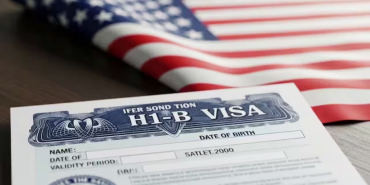Immigration Services Overwhelmed as Trump's Return Sparks Legal Status Rush

The prospect of Donald J. Trump's return to the presidency has triggered widespread anxiety within immigrant communities across the United States.
As the president-elect reaffirms his commitment to extensive deportations and immigration restrictions beginning on his first day in office, foreign-born residents are actively pursuing various legal protections. The immediate response has overwhelmed immigration services nationwide. Law firms report unprecedented call volumes, while nonprofit organizations are conducting crowded informational sessions to address mounting concerns.
Immigrants are pursuing multiple avenues to secure their status, with permanent residents accelerating citizenship applications and those with dangerous legal standing submitting asylum claims, regardless of their merit, to gain temporary protection from deportation. Additionally, individuals with American partners are expediting marriage plans to establish eligibility for permanent residency. The situation has particularly affected DACA recipients, as exemplified by one Mexican-born woman who entered the United States as an infant.
She is now hastening her marriage to an American citizen, seeking to establish more secure legal status before the presidential transition. The Obama-era DACA program, which has sheltered hundreds of thousands of childhood arrivals and provided them with work authorization, faces an uncertain future as it continues to face legal challenges and potential termination under Trump's proposed policies. The political landscape surrounding immigration has grown increasingly complex, with voters across party lines expressing dissatisfaction with border management under the Biden administration.
Trump's campaign has centered on promises of mass deportations, including plans to declare a national emergency and deploy military resources. His immigration policy architect Stephen Miller has proposed extensive detention facilities while Texas officials have offered substantial border acreage for these purposes. While deportations have been a consistent feature of US immigration enforcement, with Trump, Biden, and Obama each removing millions during their terms, the scale of proposed operations is unprecedented since the 1950s. The current administration's approach differs significantly from historical practices, particularly in its intention to establish extensive detention infrastructure for mass expulsions.
The response from institutions has been proactive with universities like UMass Amherst having issued travel advisories to their international community members, recommending careful consideration of travel plans during the winter break. This guidance stems from previous experiences with Trump's 2017 travel restrictions on predominantly Muslim nations, which created significant disruption at ports of entry. Despite protective measures implemented by states like California, immigrant communities remain apprehensive about enhanced enforcement measures.
Some institutions are exploring alternative protections, such as sponsoring work visas for DACA beneficiaries thus offering a potential pathway to permanent status.














Add new comment